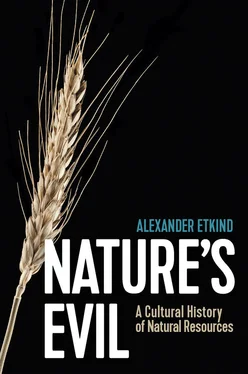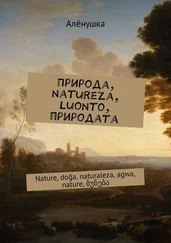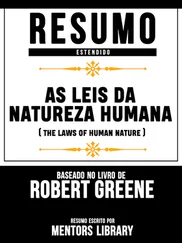While galloping to St Petersburg, Rezanov fell off his horse, and he died in Krasnoyarsk, in the middle of Siberia, in 1807. Conchita Argüello never married. During her long life she used to tell friends about her love for her dead Russian fiancé. The Russian-American Company paid smaller and smaller dividends. Its main investor, Alexander I of Russia, died unexpectedly in 1825. This led to the uprising of liberal-minded officers and intellectuals in St Petersburg, the so-called Decembrist Revolt. It was crushed by artillery fire, and an investigation found that officials from the Russian-American Company were implicated in the revolt. The rebels had held their meetings in the company’s mansion; they were planning to create a constitution along American lines. The new tsar withdrew his investments. Despite having killed 73,000 sea otters, about 30,000 beavers and 30,000 sables, more than a million foxes and an incalculable number of seals, the Russian-American Company was insolvent. Alaska was sold to America in 1867 at 2 cents per acre. 24
‘In the tender annals of political economy, the idyllic reigns from time immemorial,’ wrote Marx, explaining the primitive accumulation of European capital by the plundering of the colonies. 25The sources of imperial wealth are hidden in plain view. They are the raw materials extracted by slaves or natives and sold in Europe for monopolist prices – silver and fur, sugar and opium. Empires and, later, nation-states often fail to remember these humble origins of greatness. They sing the praises of the wisdom of rulers and the labour of the people. But there were also heretics. In the mid-nineteenth century, the world learnt about the Aleutian catastrophe thanks to the testimony of the missionary Innokenty Venyaminov. The bishop of Alaska and subsequently the metropolitan of Moscow, Innokenty wrote that, in 1766, Ivan Solovyev and his crew of sailors had killed nearly 3,000 Aleutians – more than half of a tribe that had risen up in rebellion. Among Russian historians, Afanasy Shchapov described the key role of the fur trade in the development of Russia. As a Siberian, he knew all about the tragedies which occurred on the frontier of imperial expansion. Shchapov’s favourite example of ‘zoological colonisation’ was the Aleutian Islands, where the Russians had forced the local population to hunt the sea otters until all the otters and all the Aleutians had disappeared. 26
But, even at the end of the nineteenth century, the fur tax, collected from the Siberian peoples, made up more than 10 per cent of the revenue of the Imperial Cabinet. This money, minted from the distant lives of fur-bearing animals and northern peoples, purchased the treasures of the Hermitage and the loyalty of the court. At the beginning of the twentieth century the fur trade in Siberia was still going strong. During his Siberian exile from 1900 to 1902, the young Leon Trotsky worked for the merchant Yakov Chernykh, who traded with the Tungus people on the Upper Lena, exchanging vodka and cotton prints for fur. The illiterate Chernykh made millions of roubles and had thousands of workers. ‘He was an absolute dictator’, Trotsky wrote. These youthful impressions defined his own horizon.*
Following Voltaire’s advice, Catherine the Great justified monarchical rule in Russia by the country’s unusually large size. In fact, these lands were seized because of fur, though the empire held onto them well after the fur trade had ended. In the nineteenth century, Siberia was used as a place of exile and hard labour. In Soviet times, military-industrial sites were built there, and then enormous reserves of oil and gas were discovered. The history and geography of resource streams are full of devilish irony: the delivery routes for oil and gas, from western Siberia to the Baltic and then to Germany, follow the ancient sledge tracks along which Siberian fur travelled to European buyers.
Trade in the fur of the sea otter was banned in 1911. Their population on the Aleutian Islands did not regenerate, but these delightful animals are a common sight off the beaches of California. The beaver was considered almost extinct, but a ban on hunting in Scandinavia, Canada and Russia helped to re-establish populations. In 2020 we learnt that Denmark is farming 17 million mink – three animals for every citizen; this population was the breeding ground for a new, potentially more lethal mutation of the COVID-19 virus. Sable is also bred on farms, and auctions of sable pelts continue. The squirrel remains one of the most widely distributed mammals; but, hopefully, nobody uses squirrel pelts or cat fur any more. The price of fur has fallen on account of alternative materials made from fossil fuel and thanks to campaigns by animal rights organisations and activists. Suddenly people have started worrying about fur allergies – oddly, this was never a problem in the past. In 2018 several fashion houses – Gucci, Versace – publicly renounced the use of real fur. In England, Austria and some other European countries, fur farming has been outlawed. It is more difficult to abstain from fish and other marine products. But fish farms produce heavy pollution, and the fishing industry is one of the most corrupt sectors of global business. The number of vegetarians in the world keeps growing, and at some point we will see meat eating as an aberration on a par with wearing fur.
1 *Hostage-taking (amanat) was widely used in the Russian colonisation of Siberia and Alaska but was unknown in the British, French and Spanish colonisation of America. The word amanat, like yasak (tribute) and kapkan (trap), is of Turkish origin: the theory and practice of violence permeated the Russian Empire, moving from west to east.
2 *In the first decade of Soviet power, the Bolsheviks still depended on the fur trade. One of its top managers was Artur Stashevsky, a Soviet agent in Berlin who was later responsible for organising state-owned pawnshops (Torgsin) all over the Soviet Union. Members of the Eitingon family controlled Soviet fur exports to the USA. One cousin, Matvey, held the monopoly on Russian fur in New York. Another, Leonid, was a general in the NKVD (Soviet secret police) and organised the assassination of Trotsky. A third cousin, Max, was a leading psychoanalyst in Berlin (Etkind, Eros of the Impossible; Wilmers, The Eitingons).
1 1 Sahlins, Culture and Practical Reason, p. 175; Goody, Food and Love.
2 2 Braudel, Afterthoughts on Material Civilization and Capitalism, pp. 190–4.
3 3 Mayhew, New Perspectives on Malthus.
4 4 Pomeranz and Topik, The World that Trade Created, p. 137.
5 5 Feenstra, ‘The Heckscher–Ohlin model’.
6 6 Stuart, Bloodless Revolution.
7 7 Cited in Gregory, Of Victorians and Vegetarians, p. 115.
8 8 Poore and Nemecek, ‘Reducing food’s environmental impacts’.
9 9 Magra, The Fisherman’s Cause; Grafe, Distant Tyranny.
10 10 The Russian Primary Chronicle, p. 184.
11 11 Veale, The English Fur Trade; Etkind, Internal Colonization.
12 12 Fisher, The Russian Fur Trade, p. 26.
13 13 Zhitie Sergiia Radonezhskogo.
14 14 Vilkov, ‘Pushnoi promysel v Sibiri’.
15 15 Iadrintsev, Sibir kak koloniia.
16 16 Tarle, Ocherki; Butts, Henry Hudson.
17 17 Innis, The Fur Trade in Canada; Edwards, ‘The North American fur trade world system’.
18 18 Rich, ‘Russia and the colonial fur trade’.
19 19 Innis, The Fur Trade in Canada.
20 20 Kirchner, ‘Samuel Bentham and Siberia’; Morriss, Science, Utility and Maritime Power; Papmehl, ‘The regimental school established in Siberia by Samuel Bentham’.
21 21 Matthews, Glorious Misadventures.
22 22 Ibid.
23 23 Kan, Memory Eternal.
24 24 Bolkhovitinov, Russian–American Relations and the Sale of Alaska.
Читать дальше












